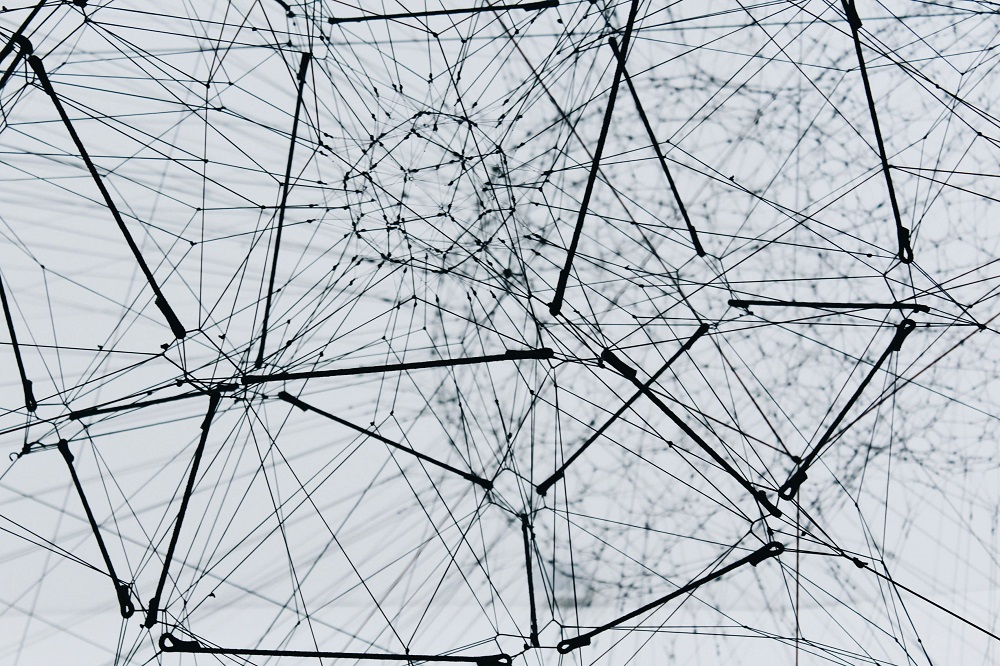The pandemic was a wake-up call for people, governments, and corporations worldwide. For many, the wake-up call was the realization of something grim. For others, the wake-up call provided a breakthrough.
All in all, the pandemic has changed everything. We expect to see a wave of changes in 2022: in how we work, why we work, who gets to work, and who gets to hire. We also expect to see the emergence of new ideas around technology, investing, science, and commerce.
But which ideas will come to define 2022? Here are the top 5.
1. Social media is more harmful than we thought
Even in 2020, in what was deemed the age of reason, with science and technology so advanced, the world was utterly defeated by the pandemic. We were simply not prepared, despite several warnings.
Scientists and political thinkers worldwide cite a plethora of complex reasons why we failed. It is not for lack of data and technology. Yes, access to them is deeply disproportionate. But even nations that had access to them could not manage the contagion. The death toll of the United States, one of the world’s two biggest superpowers, stands at over 0.8 million.
Here is what they essentially have to blame: non-cooperation, fueled by political discord.
Read more: “COVID’s Starkest Lesson”: Global Data Is Broken. Here’s How to Fix It
At a time when the world ought to be united, it could not be more divided. Instead of acting on facts and listening to experts, instead of taking responsibility for other people’s lives, we fulfilled our political agendas. In the United States, for example, deaths have been linked to areas opposed to masks and vaccines.

Political discord is a fundamental part of human society. We will always find people with whom we disagree. However, instead of bringing people together, social media has amplified the tension—to the extent that platforms have been blamed for inciting genocide. Yes, technically, social media has brought people together. But it has only brought those who think alike, creating echo chambers that punish dissent.
Who would have thought that a harmless platform for connecting college students would engender a mental health crisis, decide national elections, make us doubt fact from fiction, and be linked with several thousand deaths? Today, social media is anything but harmless. Let us not forget the privacy nightmare it represents.

Social media must change. And it will in 2022. Already, Twitter has introduced new policies around consent for re-using images. Meta, formerly Facebook, was voted the worst company in the US. It is now expected to make changes. If the platforms will not, governments will.
Read more: “The Ultimate Dream of Social Technology”: What Is the Metaverse and Everything You Need to Know
2. There are no ‘perfect hires’
Who and how a company hires says a lot about the company’s culture. Until the pandemic, the norm was to find the perfect match, whatever the company defines as perfect.
In the digital-first era, where even small companies are undergoing rapid digital transformation, companies are automating the process instead of finding the perfect match manually. A simple example is an algorithm that looks for certain keywords in résumé. Such an algorithm can screen hundreds and thousands of candidates when the résumé come pouring in. Companies with higher capital and resources can go a step further, deploying algorithms that also automate background checks and provide a probability of how successful a candidate may be in a specific role.

Given the magnitude of applicants, an HR must screen every day, the technology is a blessing. If not small companies, most large companies, and certainly all the Fortune 500, are using technology to hire more efficiently. The technology is also quite sophisticated, using machine learning and weak artificial intelligence, as more and more candidates are applying with video resumes.
However, the technology exposes the hidden biases or false assumptions at the core of a company’s or industry’s culture. When data engineering is not thought through, algorithms can end up favoring one group of people over another, further widening the skill and wage gaps, and worsening other adverse effects of discrimination.
Read more: Bias in AI: How Recruiting With AI Reduces Costs…and Diversity
If companies really want to make a difference (and improve their ESG rating), it is time they re-think their hiring policies. In 2022, we expect to see a fundamental change in how companies hire, as they let go of antiquated ideas of what makes a perfect candidate. We expect flexibility. And a new array of skills to thrive in the new normal.

3. The rise of hybrid work
Companies are now expected to attain two-fold flexibility. The first kind, as we explained above, concerns hiring. The second kind concerns the nature of work itself. For many, the pandemic represented a breakthrough. Perhaps it was the acute and constant sense of their own mortality, but the global catastrophe forced many to re-evaluate their lives.
Read more: 3 Insights From a Year of Online Learning
The phenomenon of burnout was widespread even before COVID-19. Burnout is a condition of extreme fatigue, cynicism, and reduced work performance. The phenomenon has been widely covered and has often been regarded as the defining feature of late capitalism. Employees, even in historically comfortable, white-collar jobs, have been clocking over 60 hours for a minor increase in wages. The future of work seemed grim, as the soaring price of education and housing combined with stagnant wages would force the coming generations to work even in their 60s. Let us not forget that working conditions have also not been ideal. For some, the commute can also be painstakingly long and tiring.

Then the pandemic happened. And for almost the next two years, it has been clear that so much can be achieved remotely. The phenomenon is a testament to the robustness and expanse of today’s cloud infrastructure.
The realization has led to what is dubbed the Great Resignation or Big Quit—people resigning or quitting in droves to find fully remote or flexible work. People are being highly selective and choosing work not only because it pays a good wage, but also because it offers other benefits like the freedom to work from home, a generous leave policy, mental healthcare, and that it aligns with their values. If companies want to attract the best talent in 2022, they must keep these in mind.
Read more: 55% Employees Prefer Hybrid Working – Future of Work 2021
Of course, not everyone can afford to be selective. While thousands have resigned and are not rejoining the force willingly, millions have lost their jobs. It is not hard to guess who has suffered the most: minorities and people in low-wage labor. Everyone can also not work from home. Think of just retail, hospitality, and healthcare.

Our society has never been equal. But the gap has never seemed so large. Who, for example, between men and women had to leave their jobs to care for their families? It, of course, was women, perhaps because women are paid less, and their leaving makes more financial sense. In 2021, that is unacceptable.
Could things finally change in 2022?
4. A pan-coronavirus vaccine
First, there was Alpha. Then there was Beta. Then Gamma, followed by Delta. And now Omicron. But Omicron is only the fifth of many variants of concern (VOC) of the SARS-CoV-2 virus—the virus responsible for COVID-19. Many more are to come.
Read more: The Omicron Variant Shows That COVID-19 Might Be Here to Stay—for Long
While data published by Pfizer has shown that a booster could be effective against the Omicron variant, managing the logistics of distributing and administrating another vaccine will be challenging. And that is just the booster. Low-income populations around the world are yet to get even the first shot.

And even that is true for Pfizer’s and perhaps Moderna’s vaccines. Their vaccines are mRNA-based, which are challenging to store, but can be synthesized rapidly. After all, the first vaccines hit the market in less than a year since the WHO made the pandemic declaration in March. That is history, right there.
But while mRNA-based vaccines are effective, they are expensive. If more and more variants emerge, managing the spread will be much more challenging in developing and underdeveloped countries, which cannot afford the vaccines. On the other hand, viral vector vaccines like AstraZeneca’s Covishield are easier to store, and therefore cheaper. But the vaccines take longer to develop. They are also less effective compared to their mRNA-based peers.
Read more: #COVID19: Will We Need a Third Dose of the Vaccine?
Two things. We need to get vaccines to low-income nations, and quickly, given their poor healthcare infrastructure. When a new, perhaps deadlier variant emerges, those nations should be prepared, lest they fail to flatten the curve. Second, instead of doing the first thing, we should develop a vaccine that fights all types of coronaviruses—a pan-coronavirus vaccine that provides immunity once and for all, no matter the virus or variant.

Scientists already have an eye on such a vaccine. In fact, here is thing three: instead of a jab, the vaccine could be a pill or nasal spray—a vaccine that would be far easier to administer. At least, that ought to be the solution eventually. In the short run, we expect that tested, cost-effective vaccines—and their boosters—will continue to provide immunity against the virus—and its variants.
But will manufacturing and distribution speed up in 2022?
5. Conscious consumerism
Last year, the Intergovernmental Panel on Climate Change (IPCC) published its sixth assessment report. It was also its starkest. The UN’s secretary-general, António Guterres, described the report as “code red for humanity.”
Read more: “Code Red for Humanity”: IPCC Publishes Starkest Assessment Report Yet
The report stated that climate change is human-led, unequivocally. And if we continue on the same path, we will not be able to achieve the goals outlined in the Paris Agreement. (The primary goal is to halt global warming to well below 2° C—1.5° C, ideally—compared to pre-industrial revolution levels.) The result will be more droughts, floods, heatwaves, and other extreme weather events. They would also be increasingly intense.

Consumerism is the primary cause of climate change. But while once we blamed consumers for spending unnecessarily, today we blame producers for manufacturing unsustainable products. A producer establishes a company for a single reason: profit. That is why producers manufacture unsustainable products: they are relatively cheaper to manufacture, and therefore, generate higher profits.
However, the sharp rise of conscious consumerism has forced the hands of producers. Knowing the consequences of consuming unsustainable products, consumers are now turning away from producers who are not going green. As a result, producers are now forced to rely on renewable energy, for example. They are expected to be more efficient in water and waste management. Mining must be responsible.
Actually, the consciousness of consumers today goes beyond the environment. Consumers also expect producers to create value for society, promoting diversity and inclusion (D&I), and hiring and compensating fairly. Additionally, consumers now expect private corporations to be ethical in their operation. No exploiting labor. No spying and using clever ways to extract data. Especially, sensitive data.

What we have then is a generation of consumers that is conscious and alert. In 2022, and beyond, the consciousness and alertness will only increase, forcing companies to be increasingly careful about how they power their offices and factories, how they treat their stakeholders, and how they collect and use data.
Read more: Top ESG Investing Trends to Watch Out for in 2022
How the tables have turned.

With offices in New York, Austin, Seattle, London, Zurich, Pune, and Hyderabad, SG Analytics is a leading research and analytics company that provides tailor-made insights to enterprises worldwide. If you are looking to make critical data-driven decisions, decisions that enable accelerated growth and breakthrough performance, contact us today.









